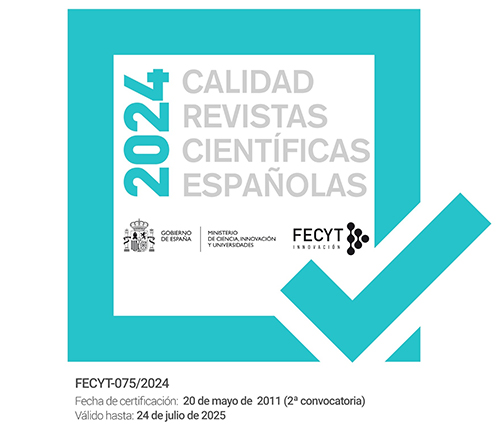Abstraction and Projection
The Grounding of (at least some) Abstraction Principles
DOI:
https://doi.org/10.30827/trif.32851Keywords:
Semantics, Principles of Abstraction, Representationalism, Realism, Meaning as Use, Processes of Projection, InvariancesAbstract
José Zalabardo’s recent book, Pragmatist Semantics, illuminates many important questions about the foundations of semantics. The main thesis is that the attribution of semantic properties is grounded on certain principles of abstraction defined over the real use of language. There are numerous problems concerning the introduction of ontological novelties through principles of abstraction. However, we will argue that the abstraction principles proposed by Zalabardo do not need to introduce any particularly suspect properties. Their basis could consist of projection processes in certain spaces so that some of the invariances originated can play, in quite a dynamical and open way, the role of the properties that are introduced for logical or semantic purposes. We will suggest the possibility of generalising our approach in relation to the application of abstraction principles in other areas.
Downloads
References
BLACKBURN, S. (1993), Essays in Quasi-Realism; Oxford: Oxford Univ. Press DOI: https://doi.org/10.1093/oso/9780195080414.001.0001
EKLUND, M. (2006). “Neo-Fregean Ontology”; Philosophical Perspectives, 20, Metaphysics, pp. 95-121. DOI: https://doi.org/10.1111/j.1520-8583.2006.00104.x
FALGUERA, J., C. MARTÍNEZ-VIDAL, and G. ROSEN (2022), “Abstract Objects”, The Stanford Encyclopaedia of Philosophy (Summer 2022 Edition), Edward N. Zalta (ed.), URL = <https://plato.stanford.edu/archives/sum2022/entries/abstract-objects/>.
FRAPOLLI, M. (2022), “Truth in Pragmatism. Dewey and Brandom Face to Face”; Análisis. Revista de Investigación Filosófica, 9, nº 2, pp.305-323. DOI: https://doi.org/10.26754/ojs_arif/arif.202227304
HALE, B., and C. WRIGHT (2001), The Reason’s Proper Study. Oxford: Clarendon Press. DOI: https://doi.org/10.1093/0198236395.001.0001
HALE, B., and C. WRIGHT (2009), “The Metaontology of Abstraction”; in D. Chalmers, D. Manley and R. Wasserman (Eds.), Metametaphysics. New Essays on the Foundations of Ontology; Oxford, Oxford Univ. Press, pp. 178-212. DOI: https://doi.org/10.1093/oso/9780199546046.003.0006
GRÖNFELDT, R. (2014), “James and Dewey on Abstraction”, The Pluralist, 9 (2), pp. 1-28. DOI: https://doi.org/10.5406/pluralist.9.2.0001
KLEMENT, K. (2010), “The Functions of Russell’s No Class Theory”; The Review of Symbolic Logic, 3, nº 4, pp. 633-663. DOI: https://doi.org/10.1017/S1755020310000225
NOZICK, R. (2001), Invariances. The Structure of the Objective World; Cambridge: Harvard Univ. Press (2003-Edición revisada).
SCHIFFER, S. (2003). The Things We Mean; Oxford: Clarendon Press. DOI: https://doi.org/10.1093/0199257760.001.0001
ZALABARDO, J. (2023). Pragmatist Semantics. A Use-Based Approach to Linguistic Representation; Oxford: Oxford Univ. Press. DOI: https://doi.org/10.1093/oso/9780192874757.001.0001
Downloads
Published
How to Cite
Issue
Section
License

This work is licensed under a Creative Commons Attribution-NonCommercial 4.0 International License.













